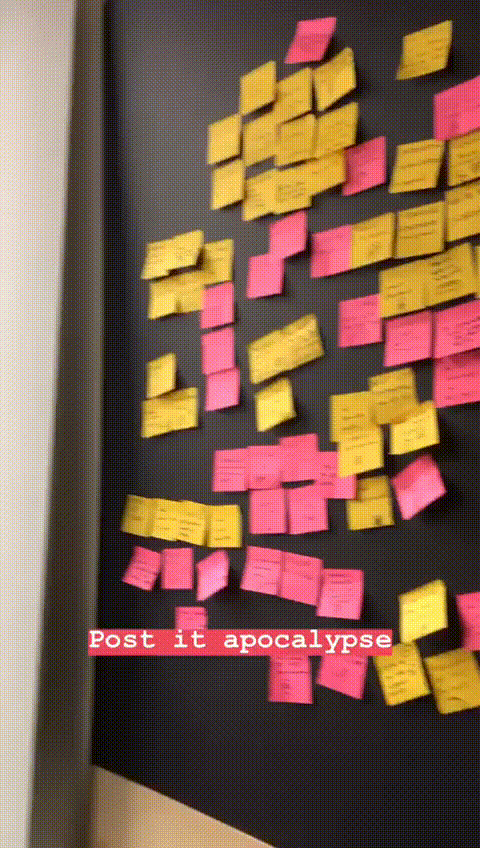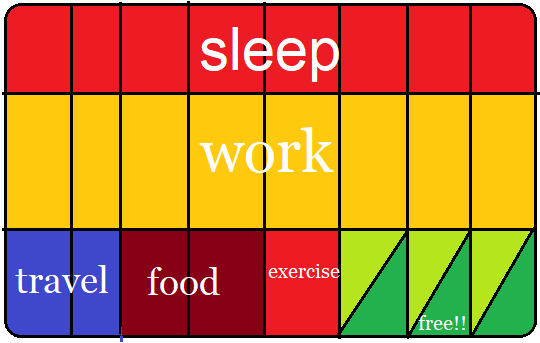Reading for curiosity, not completion
I love books. They carry ideas across hundreds of years as good as any modern technology. But I'm not what you'd call a heavy reader. I read slow, and re-read a lot, maybe 5 or 6 books a year*. I always have a long list of books I want to read. But I get engrossed in the ideas from the ones I read and fall into internet rabbit holes about them.
This made me wonder: Am I reading diversely enough? How do you even know if you're learning enough from books? These questions bug most people, I think.
So I went to TU, Munich for a summer program at the Digital Product School. They called me an AI Engineer. I tried to get them to change it to Philosopher Engineer but they wouldn't budge. The program worked like this: pick a problem, interview people about it, then build a solution.
I picked reading as my problem. I wanted to find out if other people felt as bad as I did about not reading enough.

I worked with an amazing group of people . We used a lot of Post-It notes. We interviewed tons of people about reading. Here's what we found:
- Everyone thinks reading books is valuable. Not one person disagreed.
- Everyone thinks they could read more. This was true whether they read 1 book in 3 years or 4 books in 3 weeks.
- Everyone gave the same two reasons: "I don't have time" and "I can't make it a habit."
This told me something important. The question isn't "Am I reading enough?" Everyone feels like they could read more. Instead, the real question is: "How do I make reading a habit?"
I realized that reading isn't about hitting some magic number of books. It's about having an ongoing conversation with ideas. Every day, you get to talk to the smartest people who ever lived.
But I think there's a different way to think about book selection. A lot of people log every book on Goodreads and check star ratings before reading. That's totally fine if it works for you. But I've found it's not the most fun way to discover books.
Reading feels better when it's driven by curiosity instead of optimization.
Think about how you picked books as a kid. You saw a cover that looked cool. Or someone mentioned a weird idea that made you wonder. Or you were bored and grabbed whatever was nearby. You didn't check if it had good reviews first.
That childhood curiosity is exactly how you should pick books now. If a title makes you wonder "huh, what's that about?" - read it. If someone mentions an idea that sounds interesting - find the book. If you're in a bookstore and something catches your eye - grab it.
Most of my reading comes from recommendations. Friends suggest books. Or I'll find a reading list from someone I respect, like Alan Kay's book recommendations. When smart people say "this book changed how I think," I get curious.
The key thing is that it doesn't matter what you read, as long as it helps with what Peter Naur calls "theory building". You're constantly building theories about how the world works. Every book either supports, challenges, or refines those theories. A mushroom guide and a computer science paper can both contribute to your understanding of how systems work.
And here's the thing nobody talks about: bad books are totally fine to read. Sometimes a "bad" book teaches you more than a "good" one. It shows you how not to think about something. Or it has one brilliant idea buried in terrible writing. Or it just makes you appreciate better books more.
Goodreads ratings tell you what other people thought. But you're not other people. You have your own questions, your own interests, your own weird curiosities. Trust those instead of trusting the crowd.
For example, I recently read "All That the Rain Promises and More" - a field guide to mushrooms. I have zero plans to become a mycologist. I just thought mushrooms were interesting. The book was weird and funny and taught me how fungi think about the world. Would I have found it by searching "5-star rated books"? Probably not. Did I learn something cool? Absolutely.
Here's how a typical day breaks down:

You sleep 8 hours. You work 8 hours. The rest goes to commuting, eating, exercising, and all the small stuff. That leaves about 3 hours of free time. Think of it as six 30-minute chunks.
If you use just one of those chunks to read every day, you'll read about 30 books in a year. That's over 1000 books in 30 years**. The math is nice, but that's not really the point.
Quick note: I don't care about "finishing" books. Some books give you their best ideas in 20 pages. Others need to be read completely. Don't feel guilty about putting a book down. The numbers here are just to show what happens when you read consistently.
The real magic is reading every single day. Not for hours. Just consistently. Each day builds on the last. You start connecting ideas from different books. You develop your own theories about how things work.
So my team built an app called Bukdu. I'm honestly not sure if apps can solve human problems. But this one just sends gentle reminders. It doesn't try to turn reading into a game or make you compete with friends.
The goal was simple: help people find time to read in a busy world. Think of it as carving out a small quiet space in your day for thinking.
Additional reading/viewing:
- Ashir Manzoor on the design process of Bukdu.
- BOOKSTORES: How to Read More Books in the Golden Age of Content.
- Alan Kay on How Many Books You Can Read in a Lifetime
*books I read for non-academic/non-professional purposes.
**On average a book takes 6 hours to be read to completion.